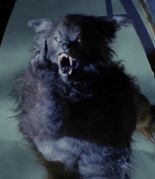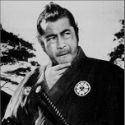|
As soon as sound and music was introduced to films, directors and producers began work to bring the stage musical to the screen. Now with the ability to use locations and elaborate stages that would be impossible inside a theater, and with the camera lens ability to frame the stage differently for a theatrical audience, musicals were an exciting genre to explore with new possibilities and tools. Like the MCU's affect on theaters of the 00's and 10's, the cinema was oversaturated with musicals in the 20's and 30's after the success of 1928's The Singing Fool and the 1929 full-color and full-sound called Gold Diggers of Broadway, which was the highest grossing film for a decade. In 1930, Hollywood produced 100 musicals. It was a great time to be a songwriter and composer, but the audiences quickly grew bored with the endless barrage of song-and-dance films with little variation.  During this time, there was a choreographer in Broadway named Busby Berkeley, who's reputation was growing for innovating the art of dance in his shows. Berkeley served as a field artillery lieutenant in World War I where he choreographed over one thousand troops into precise, complex patterns. He grew up in a musical family and had performed since 5 years old, and after the war, he married his love for musicals with the skills he learned in the army. His musical numbers became known for being large and precise, with a fascination for geometric shapes and kaleidoscopic patterns. In the early 1930's, with the market oversaturated and interest dying, Berkeley started choreographing for Universal and Warner Bros, with the latter having a run of five hits with his work. In the late 1930's he turned to directing films.. Musicals were so popular, they even included musical numbers in Marx Brothers comedies, the introduction of feature length animated films with Disney's Snow White and the Seven Dwarfs included musical numbers that are still in pop culture, and even in Shakespeare adaptations. The two biggest stars of this era were Fred Astaire and Ginger Roberts and their films Top Hat, Swing Time, and Shall We Dance.  The 1940's and '50's gave a breath of life into the musicals. 1939 saw the release of The Wizard of Oz, which introduced Judy Garland and began what film historians refer to as the Golden Age of musicals. Arthur Freed of Metro-Goldwyn-Mayer, in the early 40's, started making films to innovate on old conventions through what's called the Freed Unit. Notable features from them were Meet Me in St. Louis, Easter Parade, and they continued into the 50's with An American In Paris and Singin' In The Rain. MGM had musicals outside of the Freed unit, including Seven Brides for Seven Brother, High Society, and Guys and Dolls. Paramount had successes with the holiday favorite White Christmas and the Fred Astaire, Audrey Hepbern film Funny Face. Warner Bros. released Calamity Jane with Doris Day and A Star Is Born with Judy Garland. This is also the era where Rodgers and Hammerstein broadway shows were being adapted to the big screen. RKO Pictures released Oklahoma! starring Gordon MacRae and Shirley Jones, and 20th Century Fox released The King and I, Carousel, and South Pacific. This is the era of Judy Garland, Gene Kelly, Mickey Rooney, Fred Astaire, Jane Powell, Anne Miller, Doris Day, and numerous other Old Hollywood personalities. The list of notable musicals, including Disney's animated films and their musical numbers, that are still referenced today in pop culture is innumerable.  Possibly even more exhausting to detail than the Golden Era of musicals is the 1960's, the era of The Sound of Music, West Side Story, Bye Bye Birdie, My Fair Lady, Mary Poppins, and The Music Man. While musicals at this point had become less popular than before, these films were huge hits. Disney was still making notable hit after hit, with Babes and Toyland and Mary Poppins, but also animated features like 101 Dalmatians, The Sword in the Stone, and The Jungle Book, and Hanna-Barbera was trying to catch onto their magic with musicals for Yogi Bear and Fred Flintstone. Even Charlie Brown had a musical. Rock and Roll was becoming a cultural force. Elvis Presley starred in 27 movies in the 60's, with two or three movies a year, with hits like Jailhouse Rock, Blue Hawaii, Viva Las Vegas, and the curious/troubling titled film Kissin' Cousins, where he plays identical twin cousins and pursues an incestuous union with one of his attractive hillbilly cousins. Beach Party movies tried to capture the attention of teens with promises of rock and roll and women in bikinis. The Beatles overtook the radios, and eventually the screens with A Hard Day's Night, Help!, Magical Mystery Tour and the hallucinatory animated Yellow Submarine. Notably, The Monkees, the band that started as a corporate creation to mine popularity from The Beatles had grown into their own identity, and released a film called Head, written by Jack Nicholson, with an album with the same title that's pretty good! Rock and Roll's place in musicals has only grown. International musicals were also finding their audience. Besides the Beatles bringing Brit Rock to America, a French filmmaker named Jacques Demy was using Jazz and Operatic storytelling for his romantic drama The Umbrellas of Cherbourg, a tale of lost love, and the comedy The Young Girls of Rochefort, which struck a cord with critics all over the world. Their colorful costumes and set designs inspired musical directors, but also has had a notable influence on Japanese samurai films and Honk Kong martial arts films, as well as filmmakers like Wes Anderson. The musicals of the 60's weren't all successful. The Sound of Music was a huge hit, and Hollywood studios tried to be more adventurous with longer musicals with large budgets. Many of theme were flops, like Camelot, Hello Dolly!, Paint Your Wagon, Man of La Mancha, and were huge financial blows to the studios, leading to less musicals in the following decade.  In 1968, the Hays Code was abandoned. At the start of the 1970's, New Hollywood was growing as a voice, and audiences were following along, interested in realism and grounded stories that reflected the changes in culture, and not the old-fashion fantasies of Old Hollywood. Traditional musicals could still find success, like Fiddler on the Roof, Cabaret, and Andrew Lloyd Webber's Jesus Christ Superstar, and films about performers which incorporated gritty drama and musical numbers interwoven as a diegetic part of the storyline were produced, such as Lady Sings the Blues, All That Jazz, and New York, New York. Filmmakers and studios were interested in keeping up with pop culture though, and the Here And Now. Soundtracks that reflected current popular music were preferred by filmmakers, and studios could sell soundtracks with hit rock bands easier than original songs written for a film. These turns pushed the musical genre into weirder waters. Hair, a stage show famous for its nudity and portrayal of the Peace-and-Love era of hippiedom was still popular, as well as the colorful Christians-are-cool play Godspell. A little stage production that was growing in popularity in the UK that featured references to old horror movies and strange takes on sexuality called The Rocky Horror Show was adapted into The Rocky Horror Picture Show; a sex comedy musical called The First Nudie Musical was distributed by Paramount, with songs like "Dancing Dildos" and "Orgasm"; a 50's nostalgia vehicle called Grease found huge success; new filmmaker Brian De Palma, known at the time for his thrillers Hi Mom! and Sisters, blended the musical with 70's rock and roll excess and the horror genre and called it Phantom of the Paradise; British filmmaker Ken Russell known for his controversial film The Devils made rock operas from The Who's Tommy and a surreal biographical musical for composer Franz Liszt called Lisztomania; Alan Parker made a gangster musical called Bugsy Malone; Robert Altman created a love letter to the city of country music and America's bicentennial with his film Nashville; and Sidney Lumet, known for 12 Angry Men, Dog Day Afternoon, Serpico and Network adapted L. Frank Baum's the Wizard of Oz for black audiences, with a Motown soundtrack, called The Wiz. Even kids movies became caught in this whirlwind of weird-as-gently caress musicals, with Willy Wonka & The Chocolate Factory, Pete's Dragon and Bedknobs and Broomsticks.  Musicals remained popular in the world of theater. Broadway shows were popular, Off-Broadway shows were very popular, and London's West End theater was still popular. Rocky Horror Picture Show and Phantom of the Paradise were now cult classics thanks to the popularity of Midnight Movies and fans. SNL superstars teamed with a popular comedic director at the time to create a love letter to the Blues with The Blues Brothers, Monty Python's Eric Idle's songwriting was front-and-center of The Meaning of Life, Jim Henson's production company created a whole fantasy world centered around David Bowie as a Goblin King in their Labyrinth, and off-broadway shows like Little Shop of Horrors were getting adapted. Broadway Bands continued to have films made from their music, like Pink Floyd's The Wall, Oingo Boingo's Forbidden Zone, the Village People in Can't Stop The Music. Andrew Lloyd Webber continued his career with Cats, Starlight Express, and Evita, which would be made into a Madonna vehicle. Even Mel Brooks lampooned the genre with The Producers. Filmmakers also grew more fascinated with adding artistry to concert films. Jonathan Demme's collaboration with Talking Heads in Stop Making Sense blew away audiences, especially musicians. Even Prince was inspired to direct his own concert film Sign o' the Times, showing off his production, his band and his songs in a cinematic voice, including skits.  Disney struggled in the 80's under management, crisis of identity, and a string of lackluster performances, but ushered in the Disney Renaissance with 1989's The Little Mermaid. A big reason for this success is from the musical collaboration Howard Ashman and Alan Menkin. The two began working together on a musical adaptation of Kurt Vonnegut's God Bless You, Mr. Rosewater. Their next project was Little Shop of Horrors, which caught Disney's attention enough to hire the duo for their animated features. Together the duo made hits and karaoke favorites and classic sing-a-longs for The Little Mermaid, Beauty and the Beast, and Aladdin. Their tenure as a team was cut short with Howard Ashman's death in 1991, while they still worked on Beauty and the Beast (the film is dedicated to him, even). Alan Menken continued to work for Disney and since Aladdin, has worked on Newsies, Home Alone 2, Pocahontas, The Hunchback of Notre Dame, Hercules, Enchanted, Tangled, Captain America, Ralph Breaks the Internet, and non-Disney projects like Sausage Party and A Christmas Carol. Menken has probably defined parts of your childhood, or your kids childhood, through his lyrics and melodies. Also notable in this era is the Henry Sellick and Danny Elfman collaboration that carry's Tim Burton's name as producer, the stop-motion animated classic The Nightmare Before Christmas, a holiday favorite (although people argue on which holiday it is most appropriate for) with Seussian rhymes and word-play an catchy macabre lyrics. Dreamworks wanted to get some of the Disney magic with their Old Testament inspired adventure film The Prince of Egypt; Fox released Anastasia, the Fiefel series. Paramount threw a curveball and made an Adults Only musical with a hit show at the time, you may not have heard of, called South Park: Bigger, Longer and Uncut.  The last 20 years of musicals is broad and varying. So much as happened that film historians call our current state the New Musical Era. Audiences have happily declared so many films modern classics, like Moulin Rouge!, Chicago, Sweeney Todd, Mama Mia, La La Land, and animated films like Frozen and Moana. There is no genre of music off-limits, with country music, hip-hop, R&B, Doo Wop, and celebrity-centric bio pics. Musicals can be family friendly, or they can be dark and gritty. A made-for-TV movie about high school can spawn several sequels and an whole newfound appreciation for theater. All types of musicals persist: Jukebox musicals, bio pics, Operatic, song-and-dance, concert films, and animated musicals. The genre is as strong now as it has been. This post is exhaustive, but musicals are such a fascinating genre, because they are so ingrained in film history, and they reflect the changes in society, pop culture, and the evolution of music. It's also an unfairly maligned genre. I know, especially on these forums, people that say they don't like musicals. And yet, I can't imagine someone glancing through this post and not finding a single movie they like, or a title that sparks a memorable musical number in their memory. This thread is for discussing any-and-all types of musicals. Franchescanado fucked around with this message at 17:02 on Jan 21, 2021 |
|
|
|

|
| # ? Apr 23, 2024 19:42 |
|
oh i have so many loving opinions
|
|
|
|
I've been watching lots of musicals recently so I'm up for recommendations. I really liked On the Town, very colorful and it balances a lot of characters really well. https://www.youtube.com/watch?v=y2yGab9PII8
|
|
|
|
Oh yeah and now I get that the MST3K song "Concepts" was a parody of Music Man: https://www.youtube.com/watch?v=LI_Oe-jtgdI
|
|
|
|
I had zero appreciation for musicals before I started posting in CineD. Less than zero, in fact I actively disliked them. Then in the horror thread I gradually was introduced to some great horror musicals, like The Wicker Man, and The Lure. I still didn't consider myself a lover of musicals, but now I had some examples to give me reason to at least be more open-minded about them. Then in the Criterion thread I was gradually convinced to blind-buy Nashville. That was the real eye-opener for me because I've now watched it three times and it's become one of my favorite movies(and Altman one of my favorite directors). I'm still very inexperienced with musicals in general(most of the ones I've seen aren't even what you might call "traditional") but I'm now someone who has no reservations about sitting down to watch one, and I absolutely plan on exploring the genre further. By the way, My Fair Lady has a UHD release that's been announced for later in the year.
|
|
|
|
I have a ton of opinions, but I'll just say Little Shop of Horrors is my hands down favorite filmic musical; partially because it found ways to improve on the play, even using a weaker male lead to contrast with the strong stage female lead, which helps the characters. I HATE when Seymour out sings Audrey.
|
|
|
|
I loving love The Lure. I would assume horror musicals are more maligned by musical purists frustrated by Rocky Horror, but I can't think of a musical from the past 10 years that I like more. I'm considering getting My Fair Lady on UHD. I've only seen it twice, and that was maybe 15 years ago, but I love Hepburn and the "'enry 'iggins" song. It was actually Demy's Umbrellas of Cherbourg that made something click in my head and made me realize it's now my least-familiar genre. I loved that film, it moved me. Since then I've been looking into them more. I had noticed more discussion about musicals lately in the discord and various threads, and I've been wanting a Musical thread for a while, but felt insecure about writing an OP for a genre that I'm more familiar with by history than having actually seen films. So I look forward to the discussions and recommendations to come. Magic Hate Ball's already got me curious with their post.
|
|
|
|
Opinion: La La Land is a terrible musical. It misses a huge amount of opportunities (a discussion about jazz in a jazz musical wasn't made into a jazz musical number? what?), most of the songs are lyrically facile, and after a certain point it essentially stops being a musical at all. edit: I also think it's a shame that the cost and financial danger of adapting a musical to film means that a huge majority of the major upheaval in musical theatre in the 70s, which has continued through to today, was never translated to screen, and if they are, they're so weirdly handled that much of what makes them powerful is stripped away. We'll probably never get a film of, say, Fun Home, or Scottsboro Boys, or Assassins. fenix down posted:I've been watching lots of musicals recently so I'm up for recommendations. On The Town is interesting because it basically discarded with almost the entire Bernstein score, which was regarded by producers as being too "difficult" for audiences, so most of the songs are actually by Roger Edens. It's like if the Chicago movie replaced eighty percent of the music with new songs by the guys who did the music for The Greatest Showman. Magic Hate Ball fucked around with this message at 17:38 on Jan 21, 2021 |
|
|
|
The movie that made me realize I like musicals was The Young Girls of Rochefort. It was the MotM in here ages and ages ago, which spurred me to watch it.
|
|
|
|
Spatulater bro! posted:The movie that made me realize I like musicals was The Young Girls of Rochefort. It was the MotM in here ages and ages ago, which spurred me to watch it. That's next on my list of Demy's. I grabbed the box set during a Criterion sale recently. I think the most popular MotM lately was for the musical 1776, which has been a MotM twice now.
|
|
|
|
I think Cabaret is one of my favorite movie musicals. It alters the stage play quite a bit, particularly in dropping all the diagetic numbers in favor of keeping just the nightclub acts (which means the extensive subplot about the German landlady dating the Jewish shop-owner is discarded), but Fosse had such a sharp eye for grotesque juxtaposition that I don't mind, as displayed in scenes like these: https://www.youtube.com/watch?v=BRTmvjXs1i0 https://www.youtube.com/watch?v=Wz1YVnPZWVw They're fairly on the nose but it's a great way of communicating the jarring shocks of the play's jabs at the audience's comfort, which also ties in to the way that the energy of a musical can inform the way the message is delivered and how good they are at saying two things at once. I'll have to do some kind of effortpost about this, probably. Also about Fosse, our sleazy lord and savior.
|
|
|
|
Magic Hate Ball posted:Opinion: La La Land is a terrible musical. It misses a huge amount of opportunities (a discussion about jazz in a jazz musical wasn't made into a jazz musical number? what?), most of the songs are lyrically facile, and after a certain point it essentially stops being a musical at all. I wish Bloody Bloody Andrew Jackson was a movie not because it's very good, but it makes a nice trilogy of musicals with 1776 and Hamilton. Timeless Appeal fucked around with this message at 21:05 on Jan 21, 2021 |
|
|
|
Yea that's really where the line has been so far with my musical experience. The ones where the music is really well integrated into the story I tend to like, especially when the music is diegetic and there's an actual reason for it to be happening. The more stagey musicals where the characters just break into song randomly and then when the song is over they just drop it and go back to what they were doing have typically not been as much my thing.
|
|
|
|
Basebf555 posted:when the music is diegetic This right here is why I think so many people have issues with musicals. Everyone is used to the non-diegetic nature the score, the editing, the camera movements, etc., but when the actors themselves all of a sudden jump into non-diegetic mode and begin singing and dancing, it's off putting.
|
|
|
|
There's just a big, plain difficulty of translating the medium of a stage musical, where characters can slip in and out of songs due to the fact that they're onstage and speaking and singing are two things that happen naturally onstage and in person, to screen, where everything is "real" in a way that we're not trained to expect from a stage piece. Thus you get things like Chicago, where, in the original stage musical as envisioned by Fosse, the whole thing is vaudeville, so there's no "reality" that the characters step in and out of, which really hammers home the grotesque element. This was watered down for the 90s revival, which was much friendlier to the audience (as opposed to the original, where the theme of the evening was essentially "you're a piece of poo poo for being entertained"), and then further reduced for the film, where the musical segments are very explicitly set apart from the clearly-defined reality of the rest of the show. This works okay for Chicago, where the songs are meant to be ironic diversions (whether or not they're fully incorporated into the fabric of the rest of the piece), but when Rob Marshall, who directed the Chicago film, tried to repeat this with his adaptation of Nine, it failed, partially because Nine is a worse musical than Chicago, but also because the songs in Nine are more explicitly part of the whole. In the stage version, the whole piece takes place in an abstract space, where Guido is attempting to control all of the women in his life, but they instead rebel and pick apart the ways he treats them. Consider My Husband Makes Movies - in the play, it's part of an actual scene where Luisa is asked a question by a reporter and it's her actual answer, which makes it dramatically harrowing because we get to see how much she suffers having to put up a public front for her husband's messy life. In the film, however, it's entirely framed as being separate from the "real" events, with her...singing in his mind? I think? Or she's having a soliloquy to herself? Neither option is particularly psychologically satisfying, but it's difficult to create on film the same sense of abstracted space that the musical occupies onstage, where events can change seamlessly between modes. I find it interesting that that's such a difficult hump to get over. edit: something that I've always found interesting about Grease is that it started its life as a harsh, foul-mouthed, satirical response to the more earnest 50s nostalgia garbage that was popular in the mid-70s, but now without that context people approach it as being "Happy Days: The Musical", and I've even met a number of people who actually think it's from the 50s. Magic Hate Ball fucked around with this message at 22:51 on Jan 21, 2021 |
|
|
|
Magic Hate Ball posted:There's just a big, plain difficulty of translating the medium of a stage musical, where characters can slip in and out of songs due to the fact that they're onstage and speaking and singing are two things that happen naturally onstage and in person, to screen, where everything is "real" in a way that we're not trained to expect from a stage piece. It's more that the language is different. You have to work hard for a musical to not feel forced. I think a component of it is a live orchestra not being fully replaced with scores. An orchestra for even a bad musical has a buzz that is always keeping you on your toes. Film musicals need to be really good and lively with very clear themes for the actual songs to not feel like an abrupt shift. I think a lot of bad musicals can be identified from that feeling of 'IT'S SONG TIME NOW!" With that said I'm a sucker for a well timed and thematically purposeful reprise in a score.
|
|
|
|
Magic Hate Ball posted:edit: something that I've always found interesting about Grease is that it started its life as a harsh, foul-mouthed, satirical response to the more earnest 50s nostalgia garbage that was popular in the mid-70s, but now without that context people approach it as being "Happy Days: The Musical", and I've even met a number of people who actually think it's from the 50s. Oh. What? I've only known it in context as Happy Days: The Musical.
|
|
|
|
Grease has been fairly santized over time, including partially by the movie (which, among other things, cut out the swear words), but you still have things like Rizzo being extremely horny and Sandy turning into a leather slut, which is a pretty direct spoof of the ending of the stereotypical 50s teen rom-com, or Beauty School Dropout, where an angel descends from heaven to tell Frenchy that she's too stupid and ugly to succeed in life.Timeless Appeal posted:I dunno if it's the reality that is the issue. Nobody loses their mind when Ferris Bueller talks to the audience or wonders if the narration in Casino is of like ghosts or something. Dramatic conceits exist in film as much as the stage. Narration and fourth-wall-breaking is still speaking, though - there's something about singing in particular that's jarring. With a live show, as well, you also have the performers being in tune with the audience, so when the orchestra comes in with the intro to a song, it's a part of the natural give-and-take (the audience has, to some extent, signalled "yes, we are ready to hear you sing now"). But a film doesn't have that same give-and-take, which is probably where that "SONG TIME!" feeling comes from. It's like the difference between how Send in the Clowns functions onstage vs in the movie. In the theatre, it comes as a culmination of a tide of disappointment after a subtle dialogue scene, which is technically also true in the movie, but for some reason they chose to play it like this: https://www.youtube.com/watch?v=UxTbTfsn1iU It's such a difficult shift to nail.
|
|
|
|
Magic Hate Ball posted:Opinion: La La Land is a terrible musical. It misses a huge amount of opportunities (a discussion about jazz in a jazz musical wasn't made into a jazz musical number? what?), most of the songs are lyrically facile, and after a certain point it essentially stops being a musical at all. I definitely agree with this. La La Land really liked to trade in being a throwback to the 'golden era of musicals' but it really doesn't have the confidence to actually do it. If you're doing to be a musical then be a musical. It would be like if halfway through The Artist they decided that being a silent film was just so hard and had everyone talking normally for half the film. Like you say, about half way through the film it just because a below average relationship drama because they didn't know how to write songs about complex subjects. Yes, I get it: It's a lot easier to write a song about falling in love than it is to write a song where two people have a discussion about the nature of relationships... ...but when you actually put in the effort and do that it's amazing: https://www.youtube.com/watch?v=GrFkgyOOY30 Speaking of West Side Story: West Side Story is my favourite musical. It's so well written, every song either develops the characters or the (non-musical) themes of the story, and each song itself is written to reflect the specific background and characters of the people singing them. Sideways on YouTube did a really good breakdown on the level of detail Bernstein but into the music: https://www.youtube.com/watch?v=aQlgiO29QT4 I think the Robert Wise film is good, but it would be great to get a new version that fixes some of it's problems - most notably having actual Latinx people playing the sharks (and add the swearing back in). Unfortunately I think Spielberg is totally not the guy to do that justice.
|
|
|
|
West Side Story is a fantastic work, even if the film is slightly unwieldy. The mambo intro is one of my favourite pieces of stage music ever and is an amazing example of how Bernstein could stretch a melody and rhythm so far that it almost seems like itís going to break, pushing it almost past syncopated jazz into unstructured cacophony, but at the last second it comes back. Itís such a energetic push/pull, and itís a great way to musicalize the dangerous tension in the community. The kids, just like the music, are dancing on the edge of destruction. Side note, Iíve always been sad that Bernstein and Sondheimís adaptation of Brechtís The Exception and The Rule never made it past an early workshop phase because what exists of it is some wonderfully nasty business.
|
|
|
|
Magic Hate Ball posted:Narration and fourth-wall-breaking is still speaking, though - there's something about singing in particular that's jarring. With a live show, as well, you also have the performers being in tune with the audience, so when the orchestra comes in with the intro to a song, it's a part of the natural give-and-take (the audience has, to some extent, signalled "yes, we are ready to hear you sing now"). But a film doesn't have that same give-and-take, which is probably where that "SONG TIME!" feeling comes from. It's like the difference between how Send in the Clowns functions onstage vs in the movie. In the theatre, it comes as a culmination of a tide of disappointment after a subtle dialogue scene, which is technically also true in the movie, but for some reason they chose to play it like this: This isn't really film problem as it only really accounts for western(American) cinema, and mostly because American film industry simply stopped making musicals, so when you do get a revival it's based on an old musical stage show like Chicago, or it's an awful film made by someone that only understands the world from French films of the 60's and it's quite clear that they didn't even understand those films at all. So it's not that audiences find it odd, after all musicals were for a time one of the most popular and lucrative genres in Hollywood, the industry simply gave up, so it never moved forward. It is sad that there isn't a film industry out there that makes musicals anymore. Unless.... https://www.youtube.com/watch?v=TjUXr560Gu0
|
|
|
|
Occasionally the homages are pitch perfect. https://www.youtube.com/watch?v=VVQ0JFzXMgY PeterCat fucked around with this message at 23:10 on Jan 25, 2021 |
|
|
|
But really Franchescanado how do you write so many words and not once mention India. lol Yes they make musicals. Some people might say the musical parts are the entire point. Take for example Mani Ratnam's masterpiece Dil Se, in which our hero Shah Rukh Khan at the start of the film meets a woman in a train station, and being the horny dude SRK is, he immediately starts to hit on her. Sadly for him she leaves right away on the first train, and SRK is left behind on the station, in the rain sipping his tea and loudly wondering that he just experienced the shortest love story ever. The scene then fades out into one of the greatest music sequences in Hindi cinema, choreographed by big brain Farah Khan and scored by A.R. Rahman. https://www.youtube.com/watch?v=0v1It89cKxY Dil Se will often break into SONG TIME with sequences much Chaiyya Chaiyaa, appearing at glance to be divorced from what's happening on the rest of the film, but not textual, as each sequence plays out as SRK ideal fantasy, or even the ideal SRK film vehicle of the late 90's. He meets a woman on a train station, which is followed by a musical setpiece on a train. He meets the same woman later, but in a war zone which is followed by... https://www.youtube.com/watch?v=G44LwTCBGu8 The music of Dil Se paints India as a place for sexy even dangerous adventures in gorgeous and picturesque locations, of beautiful sculpted men and women living in exotic and erotic bliss. The reality is that it's a film about terrorism, state sponsored violence on it's own citizens, and India's own destructive colonial project.
|
|
|
|
PeterCat posted:Occasionally the homages are pitch perfect. We ain't got dames!! https://www.youtube.com/watch?v=Ljm9CDRAhMQ
|
|
|
|
I am very excited in twenty years to see Linklater's Merrily We Roll Along adaptation because: --Linklater should have done a musical earlier. --Merrily We Roll Along is good --Sondheim should be adapted more often
|
|
|
|
Okay, not strictly musicals here but Topsy-Turvy about Gilbert and Sullivan creating "The Mikado" is a great film. Here's an excellent excerpt of Shirley Henderson singing at the end. Pennies From Heaven a kinda depressing black comedy starring Steve Martin featuring an amazing performanace from yours truly Christopher Walken. Jazzy australian movie Billy's Holiday about a guy named Billy who one day discovers he sings exactly like Billie Holiday. Also I just want to say that Iove South Park: Bigger Longer Uncut me and my friends saw it in the theater then bought the CD and we listened to it all the time now a billion years later I'm still singing it in the shower, mmmm'kay.
|
|
|
|
Tomtrek posted:Speaking of West Side Story: West Side Story is my favourite musical. It's so well written, every song either develops the characters or the (non-musical) themes of the story, and each song itself is written to reflect the specific background and characters of the people singing them. Sideways on YouTube did a really good breakdown on the level of detail Bernstein but into the music: I strongly disliked The Greatest Showman, but I will never stop listening to this song: https://www.youtube.com/watch?v=yO28Z5_Eyls
|
|
|
|
Electronico6 posted:But really Franchescanado how do you write so many words and not once mention India. lol It came up a lot in my reading and research, but it's something I know little about outside of that, and hoped someone with a bit more knowledge would bring it up and discuss it.
|
|
|
|
TheMopeSquad posted:Okay, not strictly musicals here but Topsy-Turvy about Gilbert and Sullivan creating "The Mikado" is a great film. Here's an excellent excerpt of Shirley Henderson singing at the end. Topsy-Turvy is a wonderful film and I highly recommend it. For a while it was my go-to "I don't know what to watch" movie because it's so detailed, low-key, and funny. Electronico6 posted:This isn't really film problem as it only really accounts for western(American) cinema, and mostly because American film industry simply stopped making musicals, so when you do get a revival it's based on an old musical stage show like Chicago, or it's an awful film made by someone that only understands the world from French films of the 60's and it's quite clear that they didn't even understand those films at all. So it's not that audiences find it odd, after all musicals were for a time one of the most popular and lucrative genres in Hollywood, the industry simply gave up, so it never moved forward. That's fair! I guess I should note that typically I'm talking about western-American cinema. It's also true that there's kind of a chicken/egg problem where musical films fell out of fashion, so American viewers aren't exposed to as many of them anymore (and I'd argue that it's more likely than not that if they are exposed to a musical number, it's usually a spoof), which in turn means that, since they're not made as often, there are fewer chances to continue developing the film language to translate all of the things that stage musicals do to the screen*. It's almost like if horror movies died out in the late 60s and just never really came back, and the only horror movies that get made are about serial killers because they're "diagetic". I'd love to know more about Bollywood! *which is also not limited just to stage musicals, but plays as well - think of how often a play adapted to film is criticized as being "stagy", or just gets completely hosed up, like the bizarre film of August: Osage County. Amadeus is one of the best films ever made, and it's fairly different from the play, which is also one of the greatest plays ever written, and both use each medium in their own way to achieve similar results. I find that division really interesting.
|
|
|
|
You all definitely need to check out Baahubali, which is an epic Tollywood action musical in two parts, The Beginning and The Conclusion. Tollywood is like Bollywood, but for Telugu and Tamil, which are languages spoken in that particular region. Baahubali is completely absurd and entertaining as hell, and you may have seen some gifs floating around the forums because of how crazy the action in the movie gets. Both parts are on Netflix, and you can choose between the Tamil and Hindi versions, so go with Tamil because it's the language the movie was actually shot in.
|
|
|
|
Baahubali, you say? ...yes, I think I will... Also, did anyone witness the travesty of the live Grinch musical? My husband and I watched part of it when it aired and it might be the worst music I've ever heard in something that was apparently on Broadway.
|
|
|
|
West Side Story is just missing too much energy in the dancing as compared to the stage play. The whole thing is about energy and power and emotion coming out in the dancing and songs, and instead we get much less powerful dancing and dubbed songs.
|
|
|
|
Darko posted:West Side Story is just missing too much energy in the dancing as compared to the stage play. The whole thing is about energy and power and emotion coming out in the dancing and songs, and instead we get much less powerful dancing and dubbed songs. I'm not sure how I feel about Spielberg's version.
|
|
|
|
Pennies from Heaven owns
|
|
|
|
If we are going to talk movie musicals we can't be broadway chauvinists. In the past decade the successful musicals have really been dominated by two things: Disney animation (Tangled, Frozen, Moana, Frozen 2) and Disney live-action (Beauty and the Beast, Mary Poppins, Aladdin, Lion King). Its pretty clear there are alot of people that are into musicals - they just happen to be of the family-friendly demographic. There is also something about these screen-native shows that aren't fighting against conventions imported from the stage. Compare these movies that rake in hundreds of millions at the box office against Broadway imports. The recent Les Mis did alright, but we all know it had its problems with casting and direction. I liked the recent version of Into the Woods well enough, but again it seems to be fighting the medium (and it is even a Disney production!). Other stuff like "The Last Five Years" fell flat. And of course there is Cats... And by the way outside the opening number the dancing in La La Land really disappointed.
|
|
|
|
I love musicals, on stage and screen. Not all of them hit for me, but my wife (who was a child actress) really turned me into a live theatre lover. Sorry to be a cliche, but Hamilton is probably my favorite stage musical of all time (saw it on Broadway, but sadly not with the original cast), beating out Les Miserables (seen it three times, including once on Broadway). My favorite movie musicals are Little Shop of Horrors (saw a local production of it), Singin' in the Rain, and Chicago (saw it on Broadway). Some fun lesser-known musical films that are worth seeking out for any musical fans who haven't seen them: God Help the Girl -- the songs are by Stuart Murdoch of the Scottish band Belle and Sebastian. It's a sweet and melancholy movie starring Emily Browning, and parts of it pay tribute to A Hard Day's Night. I LOVE most of the songs, but I've been a Belle and Sebastian fan for over two decades. The Last Five Years -- a clever musical that starts with both the beginning of a relationship (from the male partner's sung perspective) and the end of it (from the female partner's perspective), with their two timelines moving forward and backward in time until they intersect at their wedding in the middle of the movie. It stars the ever-delightful Anna Kendrick and Jeremy Jordan, who used to be on Supergirl and is a big Broadway/cabaret singer. The American Astronaut -- a low-budget, black and white Western/sci-fi/musical that has to be seen to be believed. It also has a sequel, Stingray Sam. Both of them feel like weird fever dreams, Lynchian but also campy. Big Bad Voodoo Lou fucked around with this message at 01:18 on Jan 24, 2021 |
|
|
|
Big Bad Voodoo Lou posted:The American Astronaut -- a low-budget, black and white Western/sci-fi/musical that has to be seen to be believed. It also has a sequel, Stingray Sam. Both of them feel like weird fever dreams, Lynchian but also campy. Watchin' Bye Bye Birdie atm, with ~Ed Sullivaaaaaaaaaaaaaan~
|
|
|
|
Franchescanado posted:It came up a lot in my reading and research, but it's something I know little about outside of that, and hoped someone with a bit more knowledge would bring it up and discuss it. I'm far from the expert on it, as I'm still only really starting to watch Indian cinema that isn't made by the "Tall One". Dil Se(1998) is not a bad place to start. It is a very self-conscious film like I mentioned in my other post about it's use of music, and it's main star Shah Rukh Khan. But it's like one of the best films ever, every song is a banger, and Mani Ratnam rules so check it out. Ratnam is from Tamil, south India, and most of his films are Tamil language based, though he sometimes makes Hindi language films(like Dil Se), so honestly he is not best example of what is made in Bollywood. Sticking with Shah Rukh Khan. He is the biggest modern star of Bollywood and the face of Indian cinema, even if the years are starting to catch up on him. Huge huge ham, great dancer, can sometimes be a bit too much, but he rules. I already linked it, but I do it again, cause Om Shanti Om(2007) is incredible. https://www.youtube.com/watch?v=TjUXr560Gu0 Dilwale Dulhania Le Jayenge(1995) is the seminal Bollywood film from the 90's that the industry is still trying to make it happen again. https://www.youtube.com/watch?v=-bNwqXvMuB8 Rab Ne Bana Di Jodi(2008) has SRK playing against the type, and at the same time playing the most SRK character possible. https://www.youtube.com/watch?v=XgdY_s1LsZc His early psycho villain and anti-hero roles are also fun. Darr(1993) is the more famous and best one, but Baazigar(1993) and Kabhi Haan Kabhi Naa(1994) are worth checking out. If you want to see SRK wear nothing but jackets and being shirtless for 3 hours Ram Jaane(1995) exists! https://www.youtube.com/watch?v=jnfD7jUUbps Wouldn't call it good, but it's quite something. Another good place to start, and a personal favorite, is very horny film Rangeela(1995), with the other 90's Khan, Aamir, Jackie Shroff, and the very very lovely looking Urmila Matondkar. https://www.youtube.com/watch?v=y8k_SfJKVdo But honestly this is a lovely film. Songs here are by A. R. Rahman, from Dil Se, and they also all good and the dancing rules. Criterion Channel has right now a spotlight on director/writer/actor/showman Raj Kapoor. Awaara(1951) is the big one. Starting to get to my limits here, so my final recommendation is the pop Communist Tamil language kino Kaala(2018) https://www.youtube.com/watch?v=Wm_vSSlVsV4
|
|
|
|
Paolomania posted:If we are going to talk movie musicals we can't be broadway chauvinists. In the past decade the successful musicals have really been dominated by two things: Disney animation (Tangled, Frozen, Moana, Frozen 2) and Disney live-action (Beauty and the Beast, Mary Poppins, Aladdin, Lion King). Its pretty clear there are alot of people that are into musicals - they just happen to be of the family-friendly demographic. There is also something about these screen-native shows that aren't fighting against conventions imported from the stage. Which is interesting because a lot of these musicals very explicitly follow the super-classic Broadway formula in how the songs are integrated into the scene, but if there is a difference it's arguably that animated characters are allowed more stylized freedom of movement and visual expression, such as the dancing tattoos in Moana's You're Welcome, which also matches the typically upbeat nature of the music. It's also worth noting that the only live-action movie you listed that didn't make over a billion dollars was Mary Poppins (Returns, presumably), which made a paltry 350 million on a 150 million budget, and it's also the only one that isn't an actual-factual remake. Into the Woods is such a weird, flaccid adaptation. It looks like it was shot in a forest behind Rob Marshall's house on his days off and makes me think he doesn't know how to shoot a musical number that isn't literally on a stage.
|
|
|
|

|
| # ? Apr 23, 2024 19:42 |
|
Paolomania posted:If we are going to talk movie musicals we can't be broadway chauvinists. In the past decade the successful musicals have really been dominated by two things: Disney animation (Tangled, Frozen, Moana, Frozen 2) and Disney live-action (Beauty and the Beast, Mary Poppins, Aladdin, Lion King). Its pretty clear there are alot of people that are into musicals - they just happen to be of the family-friendly demographic. There is also something about these screen-native shows that aren't fighting against conventions imported from the stage. Iíd say that Mamma Mia (2008 - $615/$52) both as broadway and adaption, probably did more for the jukebox musical than any of the Disney films that itís contemporary to, and the rise of two distinct strands of jukebox musicals across the 10ís; The single artist ones;
And the more jukebox homages to the likes of the Blues Brothers, be that animated or not,
Thereís probably some Iíve missed on there but I think thatís the majority of the major releases. Elton John the clear winner against his two films and Sing. Total Meatlove fucked around with this message at 12:10 on Jan 24, 2021 |
|
|























